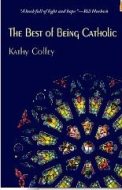Perhaps the challenge of the Christmas season is whether we can hear familiar stories and songs with wonder, not the yawn of “déjà vu.” Our model might be the three-year old boy, who, entering a vast, baroque cathedral for the first time at Christmas, seeing the trees, banners, huge statues, a jillion tiny white lights, glittering mosaics arching overhead into infinite space, breathed one word: “wow.” Can we allow the stories we’ve heard a thousand times—of a journey to Bethlehem, a stable, angels, shepherds and magi, to resonate at a deeper level this year? Can we attend with care to whatever God wants to birth in us during this season? As Eugene Ionesco warns, “over-explanation separates us from astonishment.” Perhaps the rest of the year can be cut-and-dried, but this is the season for mystery to flourish.
If ever we misperceived God as stingy or punitive, the scriptures of this season should correct that image, as God pours forth God’s self in the only Son, who begins his great adventure now. Like beautiful bells, the prophets foretell: something spectacular is on the way!
The psalms keep the focus where it belongs: on the praise of God, not on human predicaments nor flaws. They bring out today’s equivalent of the big brass band: lute and harp, the songs of forest, plains, earth and sea. And limited human beings brush shoulders with angels as all sing God’s glory.
John’s letters after Christmas might startle those who spent their childhoods following the rules, pleasing authorities and winning awards. God gives everyone gold stars, an inestimable gift of adoption as God’s heirs that no one can deserve. This inheritance would fill us with confidence and gratitude if we weren’t numb to the implications. One response might be to break into the glad abandon of dance—or to carry that exuberance more quietly within. The season also celebrates saints who took the lavish promise seriously, raising the question, “Can I too believe that God delights in me?”

